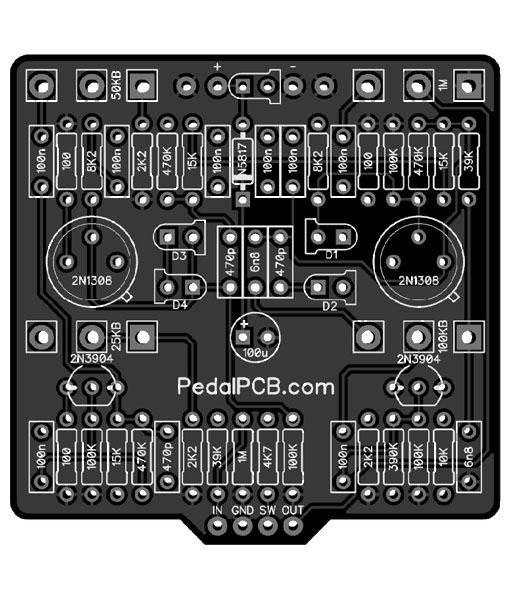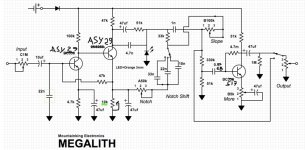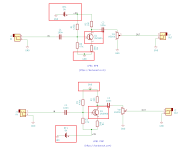If anyone has followed my recent NOS [PNP] Gemanium transistor box adventures you would know I now own a large number of ~40 hFE, low leakage Germaniums. These are obviously not at all suited for Fuzz circuits, but that's ok, I like more subtle pre-amp like effects a lot of the time anyway.
My thinking was, these would be good for multi device circuits. Maybe a cascaded design? Or maybe something like a LTP into Push Pull circuit? Could the Neve preamp be adapted to use these?
Also any ideas for line level designs? Could be nice in a somewhat subtle saturation type thing.
I'm very open to hybrid designs too.
EDIT: I should mention, I'm aware of Darlington pairs, and with the low leakage, they are indeed well suited to such a purpose, but I also am not sure what kind of circuits I would want to create a Darlington pair in, given they tend to be VERY high gain, ~1600 HFE for a 2x40 HFE pair for instance.
Further edit: I'm by no means married to 9V. If a higher voltage would help then that's fine too.
Would hate to see these devices rot in a draw, I'm sure they can be utilised in various ways.
My thinking was, these would be good for multi device circuits. Maybe a cascaded design? Or maybe something like a LTP into Push Pull circuit? Could the Neve preamp be adapted to use these?
Also any ideas for line level designs? Could be nice in a somewhat subtle saturation type thing.
I'm very open to hybrid designs too.
EDIT: I should mention, I'm aware of Darlington pairs, and with the low leakage, they are indeed well suited to such a purpose, but I also am not sure what kind of circuits I would want to create a Darlington pair in, given they tend to be VERY high gain, ~1600 HFE for a 2x40 HFE pair for instance.
Further edit: I'm by no means married to 9V. If a higher voltage would help then that's fine too.
Would hate to see these devices rot in a draw, I'm sure they can be utilised in various ways.
Last edited:





